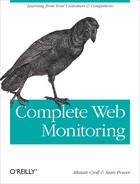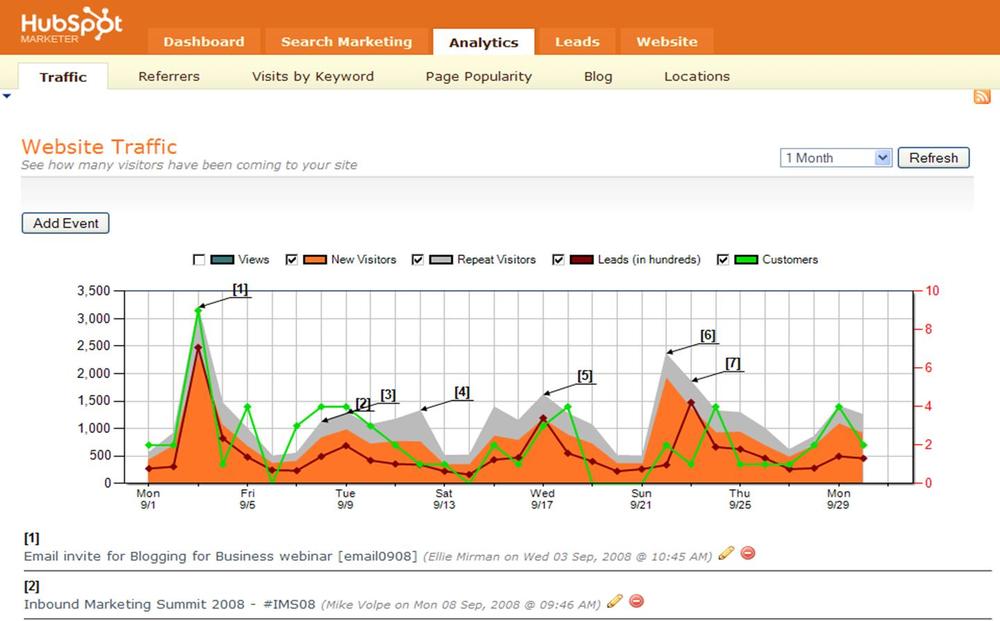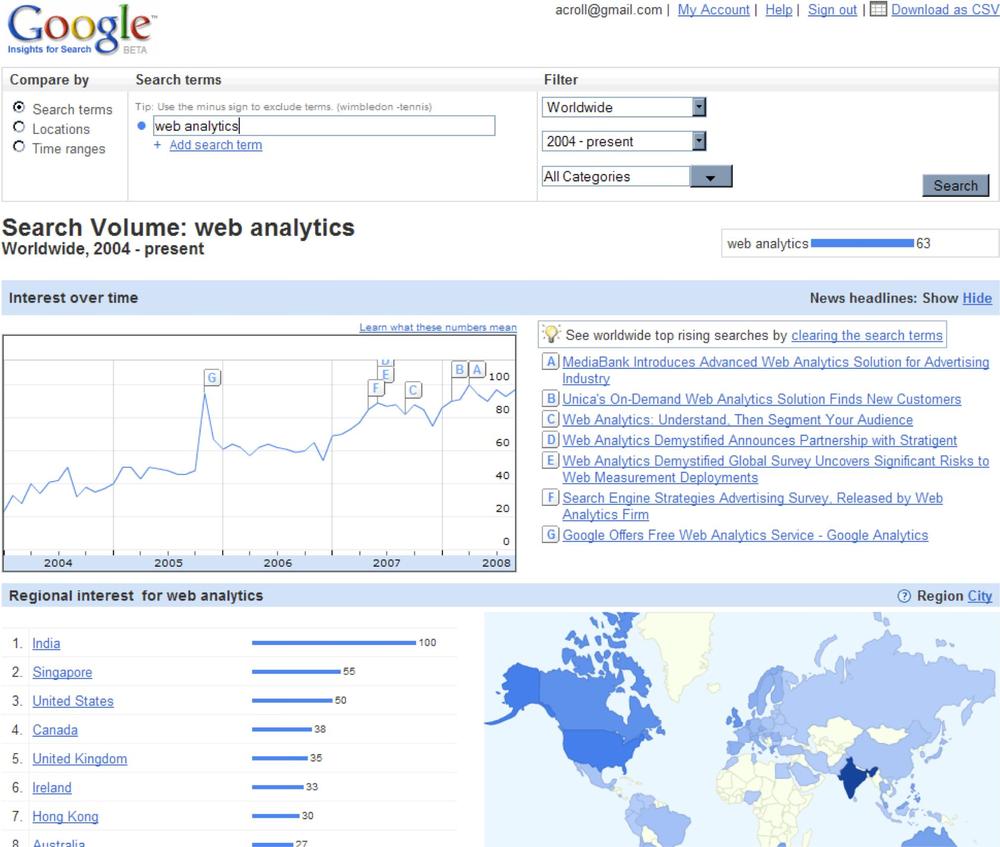On an increasingly social web, your marketing has migrated beyond your website into chat rooms, user groups, social networking applications, news aggregators, and blogs. To properly understand what the Internet thinks of you, you need to watch the Web beyond your front door.
Your primary tool for this task is search. Hundreds of automated scripts crawl the Web constantly, indexing what they find. And most community sites offer some form of internal content search these days. A variant on traditional search, known as persistent search or prospective search, combs the Web for new content that matches search terms, then informs you of it.
Google Alerts dominates the prospective search market, with some other services, such as Rollyo, using competing search engines like Yahoo!. HubSpot offers integrated marketing to small businesses by combining topical searches, lead tracking, and similar functions, as shown in Figure 3-16. There are also many community listening platforms—Radian6, Techrigy, ScoutLabs, Sysomos, Keenkong and so on—that help community managers monitor their online buzz.
In all of these models, you subscribe to a keyword across various types of sites (blogs, mailing lists, news aggregators, etc.), then review the results wherever someone is talking about things that matter to your organization.
In the era of search, nothing matters more than what Google thinks of you. As Figure 3-17 shows, if you’re the best result for a particular search term, you don’t even pay for your advertising.
Figure 3-17. Google’s ranking of Chapters as a bookstore means the company doesn’t have to pay for advertising the way Amazon does in this search
Google’s PageRank is a measure of how relevant and significant Google thinks your website is, and encompasses factors such as the number of inbound links to the site and the content on the site itself. The PageRank algorithm Coca-Cola is closely guarded and constantly evolving to stay ahead of unscrupulous site promoters.
Other sites, such as Technorati, use their own approaches, based on similar factors such as the number of inbound links in the past six months.
What to watch: Google PageRank; Technorati ranking; StumbleUpon rating; other Internet ranking tools.
Google Trends and Yahoo! Buzz show the popularity of search terms, and Google Insights, shown in Figure 3-18, breaks them down over time. If you want to understand the relative popularity of content on the Internet in order to optimize the wording of your site or to downplay aging themes, these tools are useful for more than just competitive analysis.
What to watch: Mentions of yourself and your competitors over time; product names; subject matter you cover.
Many social networks have a built-in search you can use to see whether your company, site, or products are being discussed, as shown in Figure 3-19.
What to watch: Search results for your company name, URL, product names, executives, and relevant keywords across social sites like Digg, Summize, and Twitter, as well as any that are relevant to your particular industry or domain.




